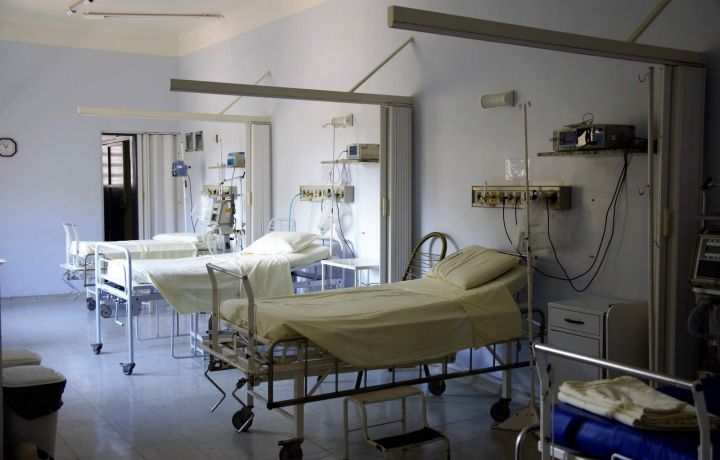MAKE A NEW CLAIM 0333 999 8800
Knee Surgery Claims Solicitors
If you have suffered following knee surgery and you feel that your treatment was negligent, you may have you may have grounds to make a claim for compensation.
Knee surgery, and particularly knee replacement surgery is often the last treatment available for people whose knee issues and symptoms are impacting on their mobility and quality of life. For this surgery to be performed negligently can be devastating, and we understand the distress that is caused if your condition has been made worse by substandard levels of care.
At Sheldon Davidson Solicitors, we have a formidable team of medical negligence experts with many years of experience in helping clients with knee surgery claims. If you think that you may be entitled to make a claim, talk to us - we can offer advice and will help you through the process.
Do I have a knee surgery negligence claim?
Knee surgery claims occur when avoidable errors are made, and when the levels of care and treatment received fall below an acceptable standard. This can be as a result of human error, due to procedures not being adequate or followed correctly, or equipment not being fit for purpose. Prior to knee surgery you should be made fully aware of the potential risks and side effects, any alternative treatment options available, and your informed consent should be given. If this was not the case, negligence may have occurred. Equally, other factors can lead to a claim for damages, including:
- errors made during surgery, such as incorrect placement of prosthetics
- unnecessary surgery
- poor quality or faulty replacement parts which are inadequate or break down
- post-operative infection if caused by substandard care.
If you believe that your treatment fell below a reasonable standard and your condition or prognosis has been made worse as a result, then you may be able to claim compensation.
What can I claim for?
When you undergo knee surgery and a mistake is made, the consequences can be severe. In the most extreme cases, a patient can find themselves facing a lifelong disability, and facing financial costs as a result. Victims of negligent knee surgery often find that they need to pay for physiotherapy, medical treatment and equipment to help them to manage their reduced mobility. We do not think that it is fair for a patient to suffer when a mistake has been made, and we will work hard to ensure that you get the compensation you need as a result of your negligent treatment. You may be able to claim for:
- loss of earnings
- medical expenses (for example prescription charges or physiotherapy fees)
- compensation for any care provided by family or friends
- injury compensation.
If you feel that you have suffered as a result of substandard care at any point leading up to, during, or following your knee surgery, get in touch. It is possible that you may have grounds for a claim, and one of our friendly medical negligence team will be able to advise you on whether this is the case, and what you might be entitled to.
Is there a time limit?
If you think that what happened to you could have been avoided with proper care, then it is important to seek legal advice as quickly as possible. Medical negligence claims have a deadline of three years, either from the date of the incident occurring, or from the point that you realised that negligence had occurred. If you are unsure as to whether you have a claim or whether you are still within the time limit to make a claim, get in touch with one of our knee surgery claims experts to make an enquiry. We will offer advice and support, and if we feel that you have grounds to make a claim, we will help you to take the next steps to claim the recompense you need.
What is knee replacement surgery?
When a knee joint is damaged or has become worn out and no other treatment (such as physiotherapy or steroid injections) can help, knee replacement surgery (or arthroplasty) can be a way of repairing the knee. Whilst it is a common procedure, it is major surgery in which the damaged knee joint is replaced with an artificial joint.
There are two types of knee replacement surgery:
- partial - where only half of the joint is replaced. This is a smaller operation, and the recovery period tends to be shorter.
- total – this is where your entire knee joint is replaced. This tends to involve a longer hospital stay (of around 3 to 5 days) and a full recovery can take up to 2 years.
Knee replacements tend to be carried out on people aged between 60 and 80, but younger people can be considered if the knee is damaged to the point where surgery is necessary.
What are the risks of knee surgery?
Knee surgery is major surgery but is also quite commonly performed, and most people go on to see huge improvements to their quality of life as a result. As with any surgery however, there is a risk of complications. Some of the most common include:
- infection of the wound or the joint replacement, which can sometimes require further surgery
- damage or a break to the bone around the replacement
- stiffness or persistent pain in the knee
- damage to surrounding ligaments or tendons
- unexpected bleeding into the joint
- blood clots or deep vein thrombosis (DVT).
- issues with the stability of the new joint, leading to the need for further surgery.
Foot drop is a condition that can be a side effect of knee surgery and leads to a difficulty in lifting the front of the foot. If you have diabetes, you are at an increased risk of footdrop as a complication, but if you are aware of this it can be possible to make lifestyle changes or to use medication management prior to your knee surgery to reduce the risk.
It can be caused by damage to the muscle or nerves during knee surgery; it may cause numbness and the front of your foot to drag on the ground when walking. You may need to wear a brace to keep your foot in the right position – the condition may be temporary, but sometimes it becomes permanent.
Less commonly there can be issues with dislocation or a change in the length of the leg. There can sometimes be issues with the equipment used, such as premature failure of an implant, use of the wrong size of implant, or an allergic reaction to either the implant itself, or the cement used to fix it to the joint. There have also been occasions where a patient has been given inadequate anaesthesia, resulting in their waking up during the surgery. Thankfully, this is very rare (the chances are roughly 1 in 19,000) but extraordinarily traumatic when it occurs.
Complications are, unfortunately, a risk that come with any surgery and are not necessarily caused by negligence. However, it is crucial that every patient understands the risks before giving consent, and each patient will have a different level of risk depending on a variety of factors. If a patient has not been properly assessed and made fully aware of the situation ahead of surgery, then that would constitute negligent treatment.
Did I receive the right advice and assessment before surgery?
There are a number of factors that raise the level of risk to a patient considering knee surgery or knee replacement. The percentage of risk of complications is generally around 3% in a healthy patient. However, if the patient is:
- older
- diabetic
- taking certain medications
- a smoker
- has previously had hip surgery,
then the risk of complications can increase dramatically.
If you had any of these risk factors, or a combination, you should have been made aware of that prior to surgery being performed, and where possible given chance to make any necessary lifestyle changes that might decrease the likelihood of complications.
Multiple risk factors can make it more likely that you will suffer from blood clotting issues or serious infection. Infection of the knee or the implant can lead to the need for further surgery and a period of time spent without a knee joint whilst you wait for the infection to clear up.
Obviously, this will have a serious impact on your mobility, and your ability to look after yourself as you wait for the infection to go. If you suffer from a serious blood clot during or following surgery the impact can be serious; you may need to take medication for the rest of your life, and if a clot travels to your brain or lungs it can be life threatening.
If you already had a pre-existing condition, it may have been necessary to see other doctors for their opinion as to your suitability for the planned knee surgery. If you have a heart condition, this may have needed further investigation; if you take medication to manage a condition, the dosage may have needed to have been modified leading up to the surgery for a safer outcome. If you have a condition that puts you at increased risk of bleeding it is vital that your surgical team are aware of that so that the risks are managed.
Why choose us?
At SDS, we have over 20 years of experience of helping our clients to pursue medical negligence claims. We fight hard to ensure that where a patient has suffered unnecessarily due to medical negligence, they receive the support and recompense that they need to live with what has happened.
If you feel that your knee surgery was negligent and you would like some advice, get in touch. One of our friendly team will listen to the details of what happened to you, and if we believe that you may have grounds to make a claim, we will support and guide you through the process from start to finish.
Contact us
Established in Manchester in 1997, we are a leading specialist medical negligence, accident at work and personal injury law firm acting for claimants nationwide.
Our expert medical negligence solicitors regularly act for clients across Greater Manchester including Ashton, Bury, Bolton, Radcliffe, Prestwich, Middleton, Failsworth, Rochdale, Oldham and Whitefield.
Our team of recognised Knee Surgery Negligence Claims Solicitors can support your needs wherever you live in Wales, England & Northern Ireland.
Call us for free now using the number at the top of the page or complete the online contact form and a member of our team will get back to you.







